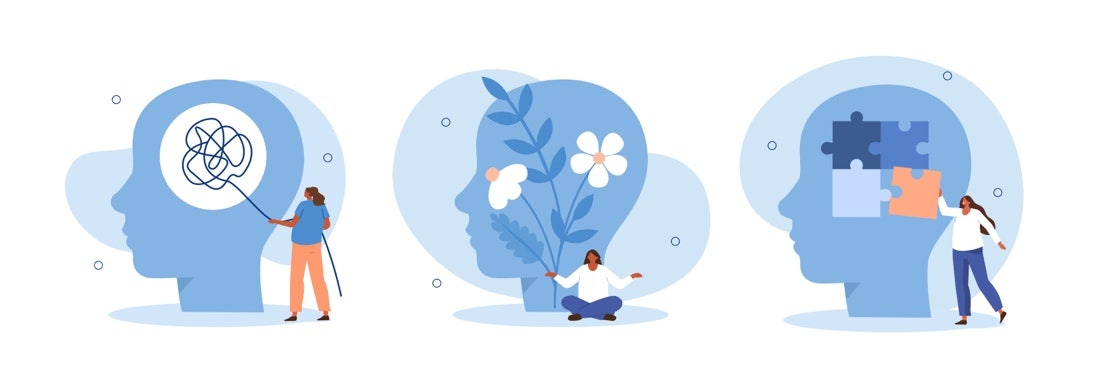Residential Mental Health Services Designed for Whole-Person Care
Residential Mental Health Services Designed for Whole-Person Care
Blog Article
Comprehensive Inpatient Mental Wellness Providers for Effective Therapy
Inpatient psychological wellness services represent an essential part of the medical care system, giving a organized and extensive setting for people experiencing severe mental distress. These solutions employ a multidisciplinary method, incorporating numerous evidence-based therapies to deal with the intricate needs of clients. Nonetheless, the performance of such comprehensive care prolongs past prompt stabilization; it additionally encompasses the transition to outpatient support, an important stage often neglected. Exploring the nuances of this continuum reveals substantial effects for both specific recuperation and more comprehensive psychological wellness results. What aspects genuinely influence this shift, and how can we enhance its effectiveness?
Recognizing Inpatient Mental Health Providers
Inpatient psychological wellness services provide essential assistance for individuals experiencing extreme mental distress that can not be managed properly in an outpatient setup. These services are made to use an intensive degree of care in an organized environment, usually within a medical facility or specialized center. Patients confessed to inpatient programs normally display severe symptoms, such as suicidal ideation, extreme anxiety, or psychosis, necessitating continuous monitoring and treatment.
The admission process normally entails an extensive analysis by mental health and wellness specialists, who review the individual's mindset, background, and immediate requirements. As soon as admitted, individuals involve in a range of therapeutic techniques customized to their specific requirements, consisting of drug management, individual therapy, and group sessions. This all natural strategy intends to stabilize the client's problem, advertise safety and security, and foster coping skills.
Inpatient mental health and wellness solutions not just address immediate health and wellness worries yet additionally act as a bridge to ongoing care. By offering a regulated setting, these services help with the advancement of therapy strategies that can be proceeded in outpatient setups, hence ensuring a continuum of treatment and improving long-term outcomes for individuals with complex mental health needs.
Key Components of Effective Treatment
Efficient treatment in inpatient mental health services comprises several key parts that cultivate recuperation and stablizing. A detailed evaluation is essential to recognize the person's certain needs and challenges. This analysis notifies the advancement of a tailored treatment strategy, which acts as a roadmap for treatment.
Another crucial component is the multidisciplinary group method. Collaboration amongst psychiatrists, psychologists, nurses, and social employees makes sure that various perspectives add to the client's treatment, improving the effectiveness of therapy. Evidence-based therapeutic techniques, such as cognitive-behavioral treatment (CBT) and dialectical actions therapy (DBT), are also essential, supplying structured techniques that resolve maladaptive thought patterns and behavior problems.

Lastly, a concentrate on aftercare planning is critical to make sure a smooth shift to outpatient solutions, lessening the risk of regression and promoting lasting wellness. These cumulative components produce an effective therapy structure within inpatient psychological health solutions.
Advantages of Comprehensive Treatment

Detailed treatment in inpatient psychological health and wellness solutions uses various advantages that dramatically boost patient results. One of the main advantages is the alternative technique to treatment, attending to not just the emotional signs and symptoms but also the physical, social, and emotional needs of clients. This detailed analysis permits for tailored treatments that promote total well-being.
Another benefit is the integration of multidisciplinary teams, which promotes cooperation among healthcare specialists. This collective atmosphere ensures that people obtain collaborated treatment, minimizing the danger of fragmented treatment and improving communication amongst caretakers. In addition, extensive care facilitates connection of solutions, enabling for seamless transitions from inpatient to outpatient setups, which is critical for lasting healing.

Last but not least, the organized setting of detailed inpatient treatment offers a secure room for clients to involve in restorative activities, helping them create dealing strategies and resilience. Jointly, these advantages contribute to more reliable therapy and enhanced lifestyle for people experiencing psychological health crises.
Evidence-Based Therapeutic Strategies
In the world of mental wellness therapy, evidence-based therapeutic strategies play a critical function in guaranteeing that people get effective and medically sustained treatments. These methods incorporate the very best available study with medical knowledge and patient values, fostering a tailored therapy experience that deals with specific requirements.
Cognitive Behavior Modification (CBT) is one of the most commonly identified evidence-based methods, focusing on determining and transforming adverse thought patterns and behaviors. This structured technique has actually shown efficacy in treating conditions such as clinical depression, ptsd, and anxiety. In A Similar Way, Dialectical Behavior Therapy (DBT) is particularly effective for individuals with borderline personality disorder, emphasizing the development of psychological regulation and social performance skills.
In addition, medicine monitoring is often an integral part of evidence-based therapy, as psychotropic medicines can minimize symptoms and improve total performance. Collective care versions, which include multidisciplinary teams, further enhance the efficacy of inpatient services by making certain detailed examinations and continuous surveillance.
Eventually, the integration of evidence-based healing techniques not only advertises positive clinical end results however additionally equips clients, cultivating a sense of agency and durability in their mental wellness journeys.
Transitioning to Outpatient Assistance
The transition from inpatient psychological health and wellness solutions to outpatient support notes a vital stage in a client's recuperation journey. This duration requires mindful planning and sychronisation to ensure connection of treatment and to reduce the threats of relapse or situation. Effective discharge planning should begin early in the inpatient keep, involving a multidisciplinary group that consists of psychiatrists, psycho therapists, registered nurses, and social workers.
Crucial element of a successful change include the advancement of a thorough aftercare strategy tailored to the person's details needs. This plan needs to outline follow-up visits, drug management, and therapeutic interventions, along with recognize community resources and support system that can assist in continuous healing.
In addition, patient and household education is crucial throughout this stage. Understanding the signs of potential problems and the value of sticking to therapy can empower people and their assistance systems.
Normal follow-up and reassessment of the outpatient plan are important to resolve evolving challenges. By cultivating a collaborative relationship in between outpatient and inpatient suppliers, the possibility of continual recuperation increases, inevitably boosting the client's high quality of life and decreasing the risk of mental health services readmission.

Conclusion
In recap, thorough inpatient mental wellness solutions offer an essential structure for dealing with severe emotional distress via a multidisciplinary approach. By integrating evidence-based treatments, cultivating an organized setting, and promoting family members involvement, these services improve treatment efficiency. The emphasis on security and the growth of coping skills not just aids in instant recovery but additionally facilitates a smoother shift to outpatient care. Eventually, such extensive care is crucial for long-term mental wellness and health.
The admission procedure normally involves a comprehensive analysis by mental health and wellness specialists, who evaluate the person's mental state, background, and immediate demands.Reliable treatment in inpatient psychological health solutions comprises numerous key components that foster recuperation and stabilization.Thorough treatment in inpatient mental health services offers countless advantages that considerably enhance patient end results.The shift from inpatient mental health services to outpatient support marks an essential phase in an individual's recovery trip.In recap, thorough inpatient psychological health solutions offer a vital structure for dealing with serious psychological distress through a multidisciplinary approach.
Report this page